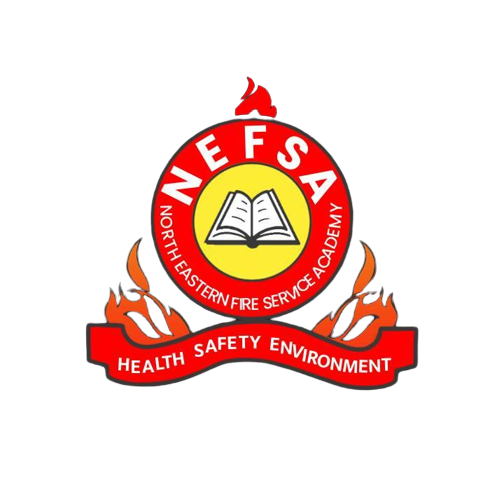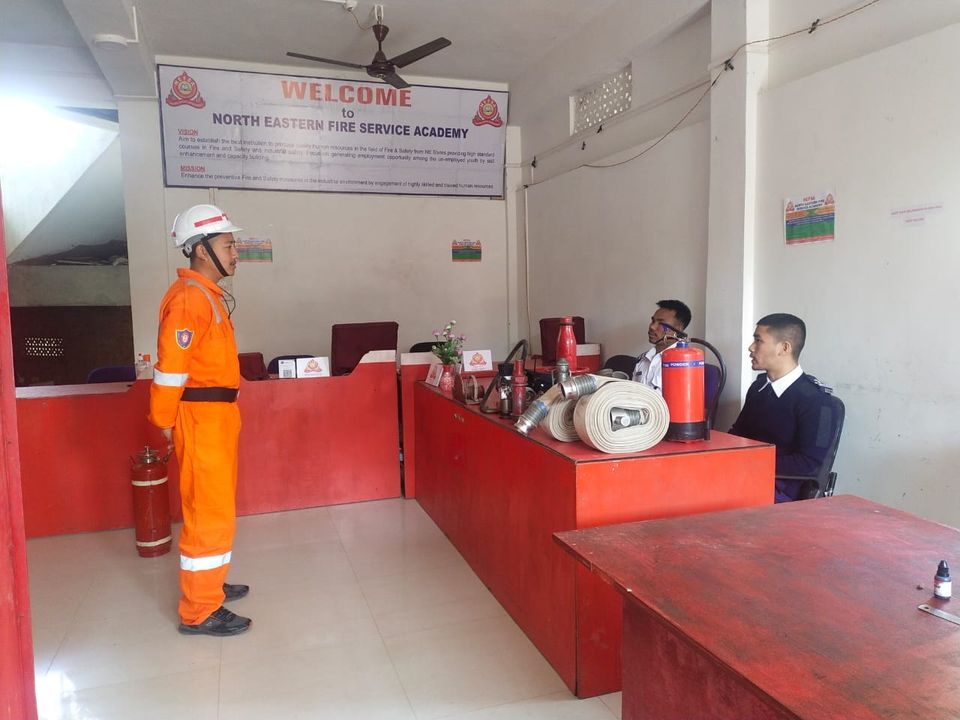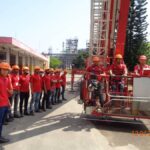In today’s ever-changing industrial environment, workplace safety is more important than ever. Businesses are under increasing
pressure to maintain stringent safety standards, not only to protect their employees but also to comply with regulations and avoid
costly incidents. This is where trained fire safety and firefighting professionals come into play. Graduates of NEFSA Fire Academy,
one of India’s leading fire safety and industrial training institutes, are leading the way in creating safer workplaces across a
wide range of industries.
With a reputation for producing highly skilled and knowledgeable professionals, NEFSA Fire Academy has been instrumental in raising
the bar for workplace safety in industries such as construction, manufacturing, oil and gas, etc. In this blog, we will explore how
NEFSA graduates are impacting and shaping safer environments across all sectors.
1. Expertise in Industrial Safety Protocols
One of the primary ways NEFSA Fire Academy graduates contribute to safer workplaces is through their in-depth knowledge of
industrial safety procedures. These professionals are trained to identify risks, assess hazards, and implement comprehensive safety measures to minimize the risk of accidents occurring. Whether managing fire risks in manufacturing plants or ensuring the proper
handling of hazardous materials in chemical facilities, NEFSA graduates are proficient in the practical application of safety standards such as guidelines from the Occupational Safety and Health Administration (OSHA) and other relevant industry regulations.
Their expertise helps industries reduce workplace accidents and improve overall safety performance.
2. Fire Prevention and Emergency Preparedness
Fires pose a major threat to many industries, causing significant financial losses and, in some cases, loss of life. Graduates of
the NEFSA Fire Academy are equipped with advanced fire prevention strategies and emergency preparedness plans. They are trained to
assess fire risks, develop fire safety procedures, and deploy fire suppression systems to protect personnel and property.
NEFSA-trained professionals often serve as leaders in fire safety inspections, ensuring that industries comply with fire safety regulations. In the event of an emergency, they are prepared to act quickly, coordinating evacuation and firefighting efforts to
minimize damage and protect lives. This proactive approach to fire prevention and management is essential to maintaining safer
workplaces.
3. Safety Audits and Risk Assessments
One of the key elements of workplace safety is conducting regular safety inspections and risk assessments. NEFSA Fire Academy graduates
are trained to conduct comprehensive assessments, identify potential hazards, and recommend action steps to mitigate risks. In
industries where safety regulations are constantly evolving, having professionals who can stay ahead of the curve is invaluable.
NEFSA graduates know how to stay up to date on the latest safety standards and implement best practices to ensure business compliance.
This systematic approach to safety management not only helps prevent accidents, but also increases productivity by creating a safer
and more efficient work environment.
4. Enhancing Safety Culture in Organizations
In addition to their technical expertise, NEFSA Fire Academy graduates play a vital role in promoting a strong safety culture within organizations. A safety culture emphasizes the importance of safety at all levels of the workforce, from entry-level employees to
senior management. NEFSA graduates are trained to effectively communicate the importance of safety procedures and lead by example.
Whether it is conducting regular safety drills, organizing safety awareness programs, or ensuring employees follow safety procedures,
NEFSA alumni are actively involved in promoting safety-conscious behavior in the workplace.
By instilling a safety-first culture, these professionals help organizations maintain safer work environments, reduce workplace
injuries, and improve employee morale.
5. Specialized Skills for High-Risk Industries
Certain industries, such as oil and gas, construction and heavy manufacturing, have higher safety risks due to the nature of their operations. NEFSA Fire Academy graduates are particularly well-prepared for these environments, as their training includes specialist
areas such as hazardous materials handling, confined space rescue and emergency planning.
These specialised skills enable graduates to effectively manage and mitigate risks in high-risk industries. For example, in the construction sector, NEFSA-trained safety officers ensure that workers follow the correct procedures when handling potentially
hazardous equipment or working at height.
In the oil and gas sector, graduates oversee the safe storage and transport of flammable substances, preventing accidents that
could have serious consequences. By bringing specialist skills to high-risk industries, NEFSA graduates contribute to the overall
safety and sustainability of these industries.
6. Creating Compliance-Driven Workplaces
Ensuring workplace compliance with national and international safety regulations is essential to avoid sanctions and maintain a
company’s reputation. NEFSA Fire Academy graduates are well versed in local safety laws and international standards, such as
ISO 45001, which sets out the requirements for occupational health and safety management systems.
These professionals not only help businesses comply with standards, but also ensure continuous improvement by conducting regular
safety audits and audits. By implementing effective safety management systems, they reduce the likelihood of workplace accidents
and create a culture that is oriented towards compliance, prioritizing safety and accountability.
7. Leadership in Safety and Risk Management
Many NEFSA Fire Academy graduates go on to hold leadership positions within their organizations, overseeing the entire security
department and shaping company policies. As security managers or directors, they develop strategies to meet long-term security
goals, conduct employee training programs, and coordinate with other departments to ensure company compliance.
The leadership skills developed at the NEFSA Fire Academy make graduates invaluable assets in promoting workplace safety and ensuring
that risk management measures are strictly adhered to. They are often the driving force behind security improvements, continually
pushing their organizations toward higher security standards.
8. Driving Innovation in Safety Solutions
As workplace hazards increase, so do the solutions needed to mitigate them. NEFSA Fire Academy graduates are not only equipped with
the skills to follow existing procedures, but are also trained to think critically and drive innovation in safety practices.
Many alumni have introduced new safety technologies, streamlined emergency response systems, or developed more effective methods of
risk assessment and hazard control. By continually looking for ways to improve safety procedures and implement new technologies, NEFSA graduates ensure their workplaces stay ahead of emerging risks, creating a safer and more resilient work environment.
Conclusion: Building Safer Workplaces with NEFSA Fire Academy
From technical expertise in fire and industrial safety to leadership roles in promoting a culture of safety, NEFSA Fire Academy graduates are shaping safer workplaces across a wide range of industries. Their commitment to maintaining high safety standards, conducting rigorous risk assessments and ensuring compliance with safety regulations makes them indispensable in today’s fast-paced, high-risk workplaces. Whether preventing accidents, managing emergencies or promoting a culture of safety, NEFSA graduates continue to play a vital role in improving workplace safety, saving lives and protecting goods. If you are looking for professionals who can make a real difference to workplace safety, NEFSA Fire Academy graduates are the safety leaders of today and tomorrow.
Take the first step towards becoming a certified fire safety professional.
For more Blog : Click Here







